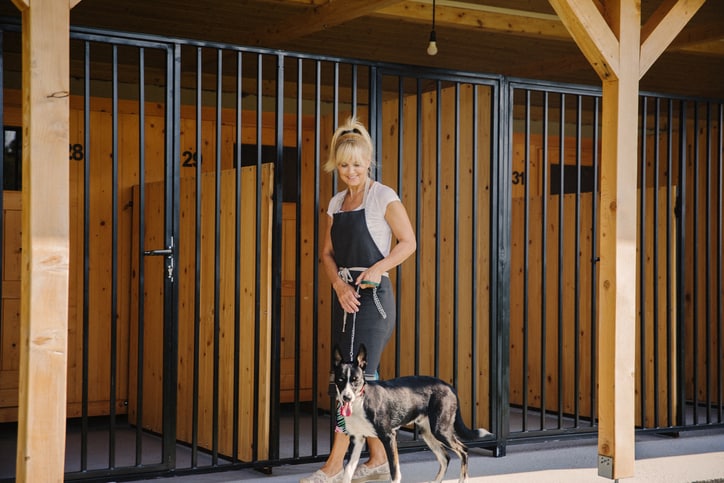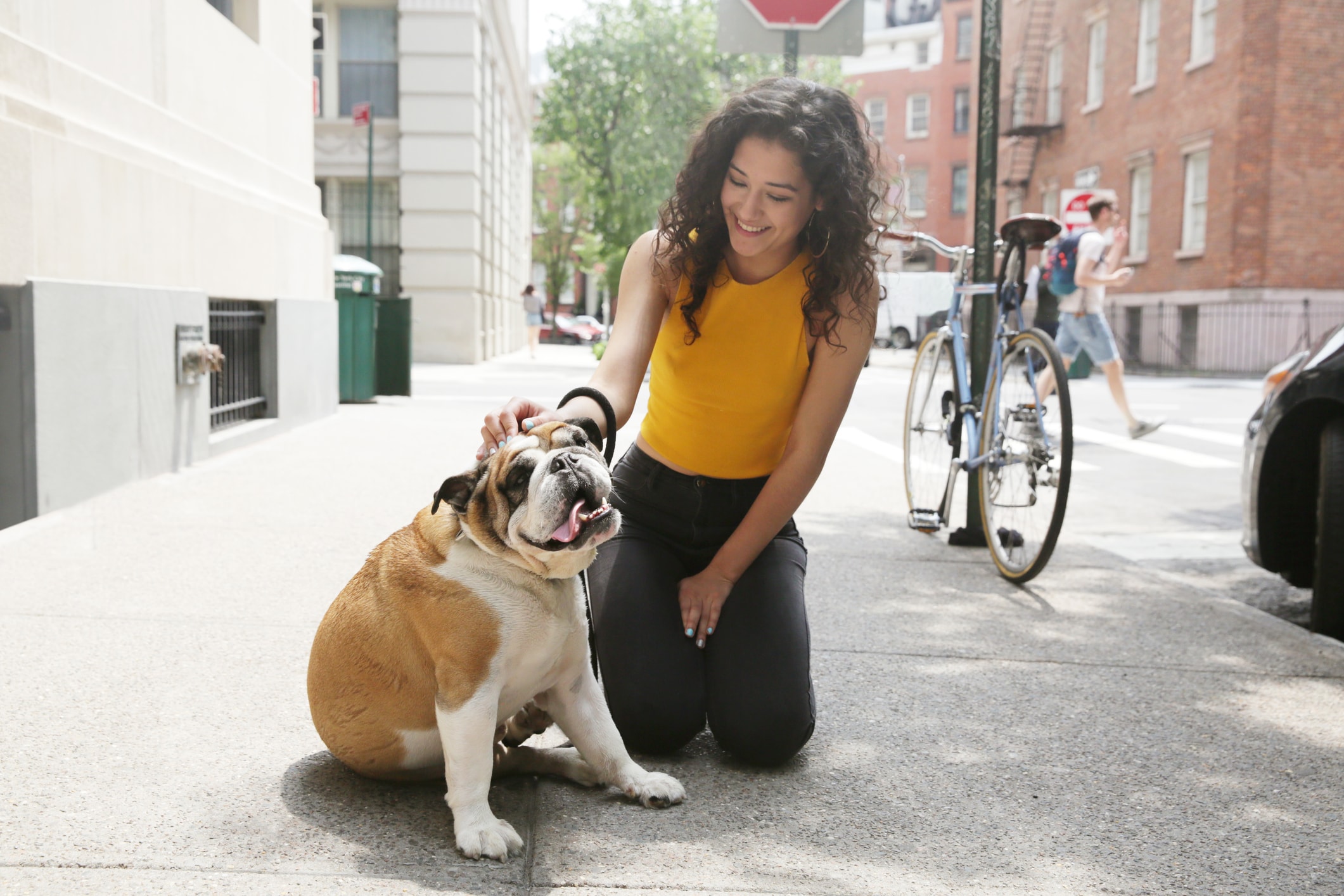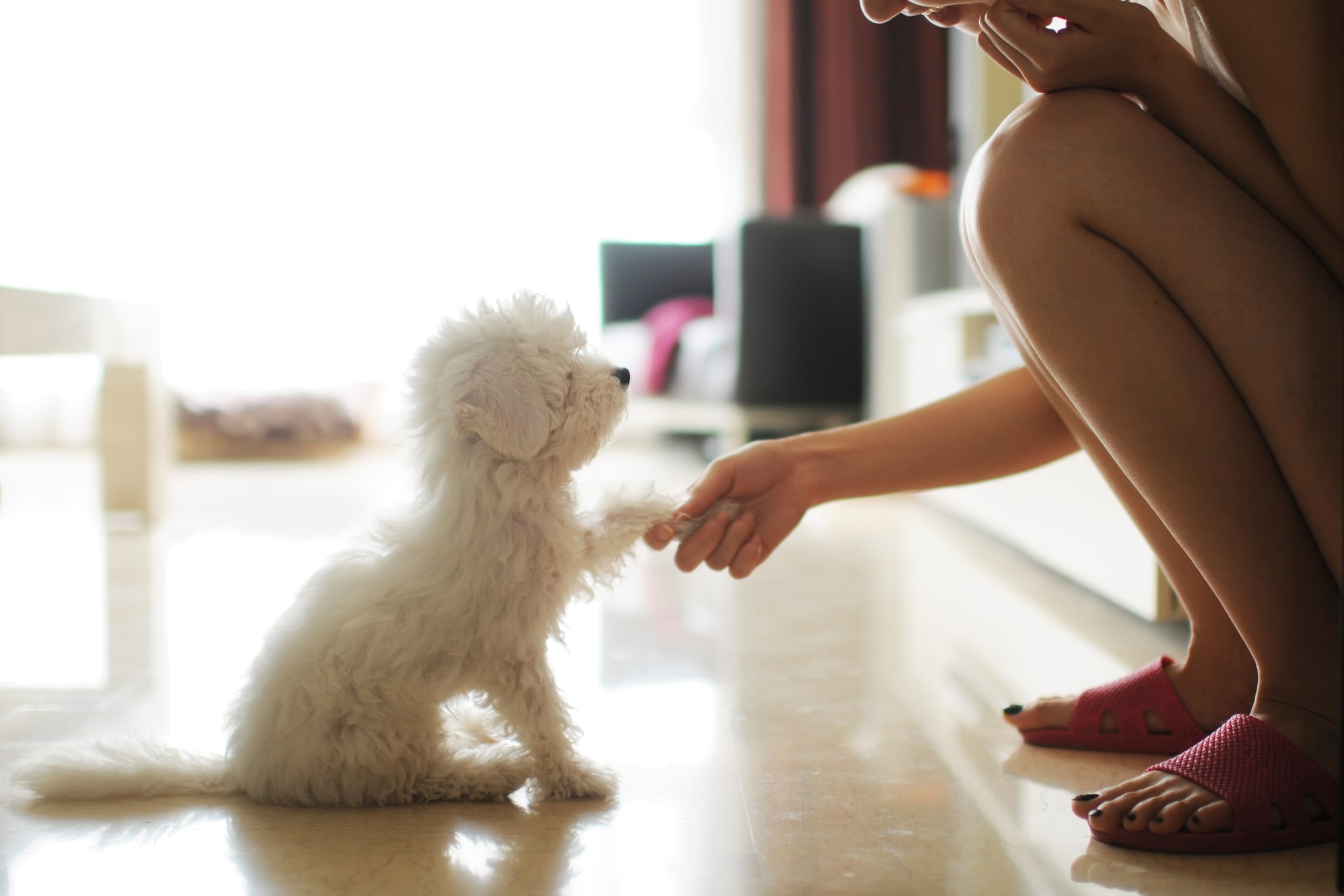If you need to take a business trip or are planning a family getaway, you may have to board your pets while you’re away. Leaving your fur buddies behind can be as stressful for you as it is for them, but it doesn’t have to be. Selecting the right boarding kennel is easy. Asking the right questions and identifying what’s most important to you can help you decide on the best option for you and your pet’s needs.
So what are the right questions to ask and what should you consider when looking at different kennels? Animal experts weigh in on ways to ensure you’re leaving your four-legged family members in a safe and caring environment.
1. Where can I find a quality kennel for my pet?
Find a dog boarding kennel near you
The best person to ask is probably your pet’s veterinarian. Since they talk to pet lovers all day, every day, they most likely have the scoop on kennels near you. If you take your dog to a dog park in your community, ask other dog owners there if they have any recommendations. You can also search an online platform, such as Care.com, to find local kennels or pet sitting services.
2. Should the kennel be certified?
It’s not mandatory for kennels to be certified. However, there are voluntary processes for certification established by organizations, including the American Animal Hospital Association (AAHA) or the International Boarding & Pet Services Association (IBPSA). These certifications are based on safety and risk management standards set by the organizations to help ensure kennels provide a safe environment for pets and staff. You can always ask kennel staff if their facility is AAHA, IBPSA or otherwise certified.
“The process is not cheap, and it’s rather difficult,” says Liane Ehrich, a certified veterinary technician in Tucson, Arizona. “Not all kennels bother with it.”
3. Should I tour the kennel?
Always ask to tour the facilities. If a kennel will not allow you an impromptu tour, do not leave your pet there.
“A good kennel should be largely odor-free and as quiet as possible — difficult with dogs, but necessary for cats,” Ehrich says. It should also be well lit and attended by diligent staff. Of course, sanitation is also key. The living and playing areas should look and smell clean, and be free of waste and urine to prevent spreading disease.
Also look to see that the kennel isn’t overcrowded; ask the staff how many animals they usually board and how many workers are normally staffed. There should be no greater than a 1:10 staff-to-dog ratio. The higher the people-to-animal ratio, the more individual attention your pet will get. Animals should look content and stress-free, and also have proper bedding and water. High-tech facilities may have web cams set up so you can check in on your furry friend from your computer while you’re away.
And ask questions during your kennel tour, including:
- What will they do if your animal gets diarrhea, breaks a toenail or won’t eat?
- How often are dogs walked?
- What will they do in the event your dog needs medical attention?
4. What type of staff should I look for?
Like kennels themselves, kennel staff do not necessarily need a certification in animal behavior or training. What is even more important than any certificate is the staff’s attentiveness and attitude. They should be able to tell you details about every dog and cat under their care. Ideally, a kennel assistant should welcome each animal — and its human — as if they are entering a five-star hotel. He or she should take meticulous notes about your pet’s diet and exercise needs, medications and any other pertinent information (such as your pet’s favorite toy). They should be patient, friendly and genuinely concerned for your pet’s welfare.
5. What hours should a kennel have?
Kennels are usually not staffed 24 hours a day, though it is reasonable to ask about staffing hours. Even if a facility is on a person’s property, they may have no idea if your pet gets caught in fencing in the middle of the night. It’s important to know whether or not someone will be on the premises at all times, or if someone will be checking in on the animals every hour or so throughout the night. You also want to make sure the kennel is open during the hours you will need to drop off or pick up your pet.
6. What should I look for in exercise/play programs?
“You get what you pay for with kennels, as in all things,” Ehrich comments. “Make sure you know what your money is buying. Some kennels include one playtime; some include none in the base fee.”
There should be some system in place to divide dogs by play style, size, age, etc. to keep them safe and happy. Dogs that require more exercise should also be walked by a kennel assistant. If you own a breed of dog, such as a German shepherd or greyhound, that requires more walking, make sure that the kennel offers this service and that it is adequately staffed to meet your dog’s needs. Not all kennels provide toys for your pet to play with. There is nothing wrong with bringing a few of your dog’s favorite toys from home to keep in its crate. If you are uncomfortable with letting other dogs play with your dog’s toys, let the staff know.
7. What safety issues should I be aware of?
In a kennel, look for bent wire, torn fencing or jagged edges.
“Ask if your dog will be allowed to play unattended with a chew toy,” Ehrich suggests. “If it is, that’s a red flag.”
Dogs in kennels and doggy day care should never wear collars. If they are, this is a serious strangulation hazard. And if you have a frail or elderly pet, a kennel housed at a veterinary clinic may be a better option.
8. What immunizations should my pet have?
Before bringing your pet to a kennel, you may need to stop by the vet. “The core vaccines for dogs are rabies, distemper, parvovirus and adenovirus,” says Lorie Huston, a small animal veterinarian from Providence, Rhode Island. “Many kennels require vaccination against Bordetella and canine influenza as well.” Other prophylactics, such as flea and tick prevention and heartworm preventatives, are also strongly suggested.
When it comes to cats, required vaccinations include rabies, feline panleukopenia, calicivirus and rhinotracheitis. “Cats that are allowed to socialize with other [cats] should have a negative feline leukemia and feline AIDS status, although vaccines may not be recommended depending on the cat’s lifestyle,” adds Huston.
Check with the kennel to see if they require any other types of shots.
9. What if my pet has a disability or medical problem?
If your pet has health issues, this will impact your kennel search. “It depends to some extent on the type of disability,” says Huston. “For dogs that are blind or deaf, having handlers that let the animal know they are nearby to avoid startling them can help. These pets will need more personal attention and more time and patience to care for. Pets that suffer from degenerative diseases like arthritis should receive soft bedding on which to rest. Cats with mobility issues may need litter boxes with low sides for easier access.”If your pet takes medications, make sure the kennel has some type of routine procedure in place so your pet gets her medication at the proper time and there is no chance of double dosing or missed doses. Always leave your contact information, as well as your veterinarian’s information, in case of an emergency. Keep in mind that some medical conditions may require more care and monitoring than the average kennel is able to provide.
10. What if my pet has separation anxiety?
Huston advises pet owners to take caution when it comes to separation anxiety. “Pets that suffer from separation anxiety, especially severe separation anxiety, may not be good candidates for boarding.” A pet sitter may be a better alternative. In the event that a pet sitter cannot be found, your veterinarian may be able to offer medication or advice to help your pet cope.
11. Should I consider a pet sitter instead?
As mentioned, pets that suffer from separation anxiety may be good candidates for a pet sitter. Other pets that don’t adapt well to kennel life or don’t get along with other animals might also be good fit. If a pet owner is going to be absent for a long period of time, a pet sitter might be a better alternative than a long-term boarding situation.
“Most pets suffer less stress in a home situation than a kennel situation,” says Huston. Some animals exhibit self-destructive behavior when left alone.
“Food protest is a common thing, and so is withholding their waste,” says Brian Douglas, who served as clinical services director and spay/neuter program manager for the Young-Williams Animal Shelter in Knoxville, Tennessee. “This can cause urinary tract infections and constipation issues.”
Douglas also recommends a pet sitter if your dog or cat suffers from mobility issues or is not up-to-date on vaccines.
The most important thing to note when visiting different kennels is how the environment makes you feel. Trust your gut. If you feel comfortable there and get along well with the staff members, it’s likely that your best bud will feel at ease there as well. No kennel will feel exactly like home to your pet, but if it can come close, you’ll be able to go on your trip knowing your pet is safe and sound.





